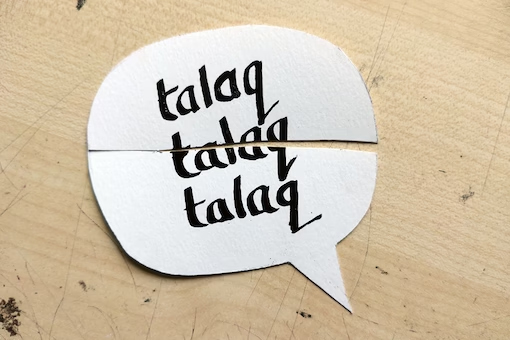
 Source :
Source : What is next in the Triple Talaq saga?
The logical question is will the government move towards the Uniform Civil Code.
In October, 2016, on the basis of an order of the law ministry, the Law Commission issued a questionnaire on the UCC. It received over 40,000 responses. Till recently it was in the process of tabulating them. However, with the SC hearing the Triple Talaq issue, Law Commission chairman, Justice BS Chauhan, told the media they had slowed down the process of compiling their report till the SC disposed of the Talaq case.
His logic, as told to Indian Express in April, 2017, was: “Once the matter is argued before the Supreme Court, many issues of Constitutional or religious nature will be raised and that may help us, so we are going slow. If the court holds that you cannot interfere in religious matters, it will be binding on us. We do not want a situation where we take a view and the Supreme Court takes a contrary view.”
The Law Commission has repeatedly been trying to convince critics that freedom of religion would be respected while attempting to stitch together a report on UCC. Justice Chauhan has repeatedly said that in the Law Commission’s opinion, the UCC would mean that there is no gender discrimination and that individual religions and religious faiths of individuals will not be affected.
In its October 7, 2016 appeal to the public to fill a questionnaire, the Law Commission had said: “The objective behind this endeavor is to address discrimination against vulnerable groups and harmonize the various cultural practices.”
The Commission took care to reiterate that it did not intend to tread on religious practices: “The Commission hopes to begin a healthy conversation about the viability of a Uniform Civil Code and will focus on family laws of all religions and the diversity of customary practices, to address social injustice rather than plurality of laws.”
The appeal also states the rationale for reforms in family laws by introducing the subject of women’s rights. It says: “Family law reform, inter-alia has to view women’s rights as an end in itself rather than a matter of constitutional provisions, religious rights and political debate alone. With this in the background the Commission opens the debate on uniform civil code and seeks your valuable contribution towards social and legal reforms.”
The 16-point questionnaire has the following on the matter of polygamy and divorce:
*Should the following practices be banned and regulated?
a. Polygamy (Banned/Regulated)
b. Polyandry (Banned/Regulated)
c. Similar customary practices such as MAitri-karaar (friendship deed) et al. (Banned/Regulated)
*Should the practice of triple talaq be
a. Abolished in toto
b. Retain the custom
c. Retained with suitable amendments
*Do you agree that all the religious denominations should have the common grounds for divorce?
a. Yes
b. No, cultural difference must be preserved
c. No, but there should be the same grounds for divorce available for men and women within personal law
*Would UCC aid in addressing the problem of denial of maintenance or insufficient maintenance to women upon divorce?
a. Yes
b. No
(The penultimate question, number 15, quietly asks:
Would UCC infringe an individual’s right to freedom of religion?
a.Yes
b.No.)
Now that the SC has come out with its verdict on Triple Talaq, the Law Commission is expected to quickly wrap its UCC report and submit it to the Union government in a month or two. It will then be examined by the law ministry which will also be simultaneously shaping the draft of a post-triple talaq legislation.
The issue of UCC began in the run-up to the Uttar Pradesh assembly elections earlier this year when Prime Minister Narendra Modi made a campaign out of triple talaq and its deleterious effect on Muslim women. UP chief minister Yogi Adityanath went a step further to say that the UCC was the best method of ending the practice of gender discrimination.
Critics say the BJP, which always included the UCC in its election manifesto, is merely using gender discrimination as a pretext to bring in the UCC by introducing an element of standardization that would affect religious laws. They contend there cannot be a UCC which does not affect religious freedom when several actions of right-wing fringe organisations militate against the secular polity of the country.